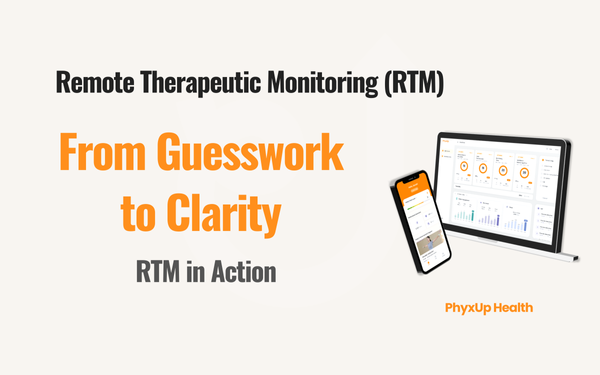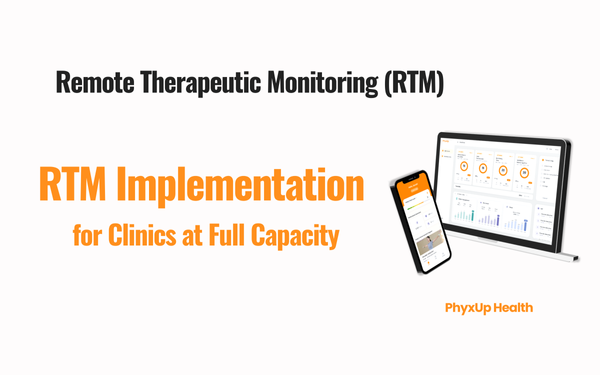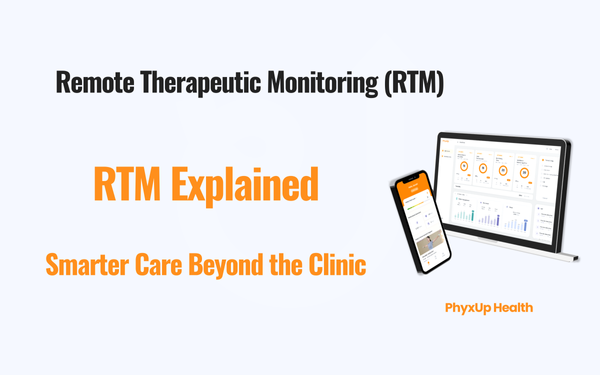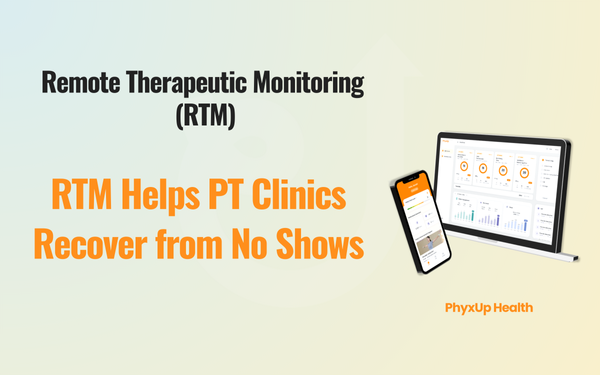Addressing No-Shows and Cancellations Using Remote Therapeutic Monitoring (RTM)
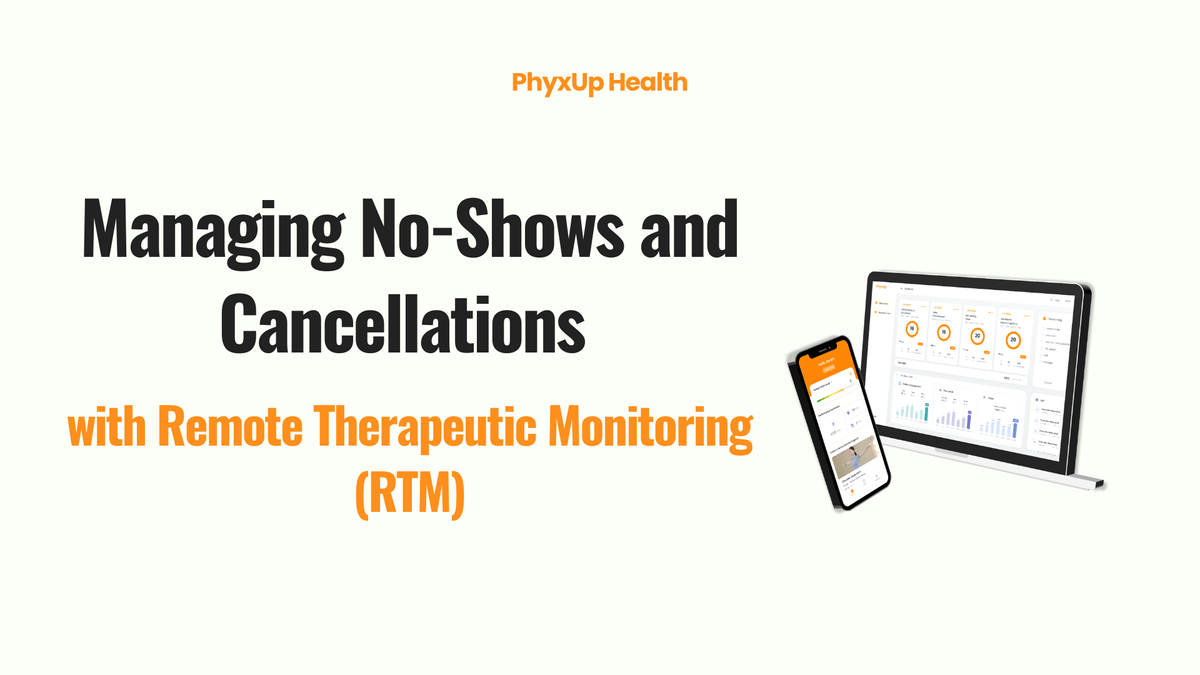
In outpatient physical therapy practices across the U.S., cancellations and no-shows are persistent challenges, disrupting clinic schedules and impacting patient care.
These missed appointments can stem from a variety of reasons—scheduling conflicts, transportation difficulties, financial concerns, or a simple lack of patient motivation. However, the consequences of these missed visits go far beyond mere scheduling inconveniences.
The Hidden Costs of Cancellations and No-Shows
When a patient fails to attend a scheduled therapy session, they miss out on crucial aspects of their rehabilitation, including hands-on treatment, functional progress assessments, and necessary adjustments to their care plan. Even skipping a single session can disrupt their recovery trajectory, delaying their progress and increasing the likelihood of a prolonged rehabilitation period. Over time, inconsistent attendance can lead to suboptimal patient outcomes, ultimately reducing the effectiveness of physical therapy interventions.
The Impact on Physical Therapists and Clinic Operations
For physical therapists, frequent cancellations and no-shows create significant operational and clinical burdens. Each missed session disrupts treatment continuity, forcing therapists to revisit earlier phases of rehabilitation rather than progressing toward functional recovery. This not only increases their workload but also affects patient engagement, as individuals who miss sessions are more likely to disengage from their rehabilitation altogether.
From a financial perspective, missed appointments can be costly for clinics, leading to lost revenue opportunities and underutilized appointment slots.
Ultimately, when patients are unable to adhere to their treatment plans, it places a heavier burden on therapists and leads to decreased overall efficiency within the practice.
A Modern Solution: Remote Therapeutic Monitoring (RTM)
With the rise of digital health solutions, physical therapy practices now have access to digital tools that enhance patient engagement and treatment adherence. One such advancement is Remote Therapeutic Monitoring (RTM), introduced by the Centers for Medicare & Medicaid Services (CMS) in 2022.
Through RTM-enabled platforms, physical therapists can:
✅ Monitor patient progress in real-time via digital health applications
✅ Provide customized home exercise programs (HEPs) and educational resources
✅ Track key data points such as pain levels, compliance rates, and functional improvements
✅ Adjust care plans remotely based on patient-reported outcomes
✅ Facilitate ongoing communication to keep patients engaged in their recovery
By leveraging RTM, therapists can provide care even when last-minute cancellations or no-shows occur. This eliminates the need to scramble to fill open slots, allowing clinics to maximize efficiency without the stress of last-minute rescheduling.
Financial Benefits: A New Revenue Stream for Physical Therapy Practices
Beyond its clinical advantages, RTM presents a valuable financial opportunity for physical therapy clinics.
This reimbursement structure means that even in cases of cancellations or no-shows, clinics can continue to generate revenue while maintaining high-quality patient care. By implementing RTM, physical therapists can effectively turn missed appointments into opportunities for engagement, progress tracking, and revenue generation—without adding significant administrative burdens.
Making RTM Simple with PhyxUp Health
Despite the clear benefits of RTM, many clinics hesitate to adopt it due to perceived complexities related to implementation, compliance, and billing. That’s where PhyxUp Health comes in.
PhyxUp Health offers an intuitive, all-in-one RTM solution designed specifically for physical therapists. Our platform simplifies every aspect of RTM, from seamless patient onboarding and progress tracking to automated billing support. With PhyxUp Health, physical therapy clinics can:
✅ Easily integrate RTM without disrupting existing workflows
✅ Ensure compliance with CMS guidelines and billing requirements
✅ Improve patient engagement through interactive digital tools
✅ Maximize revenue potential with automated tracking of billable RTM services
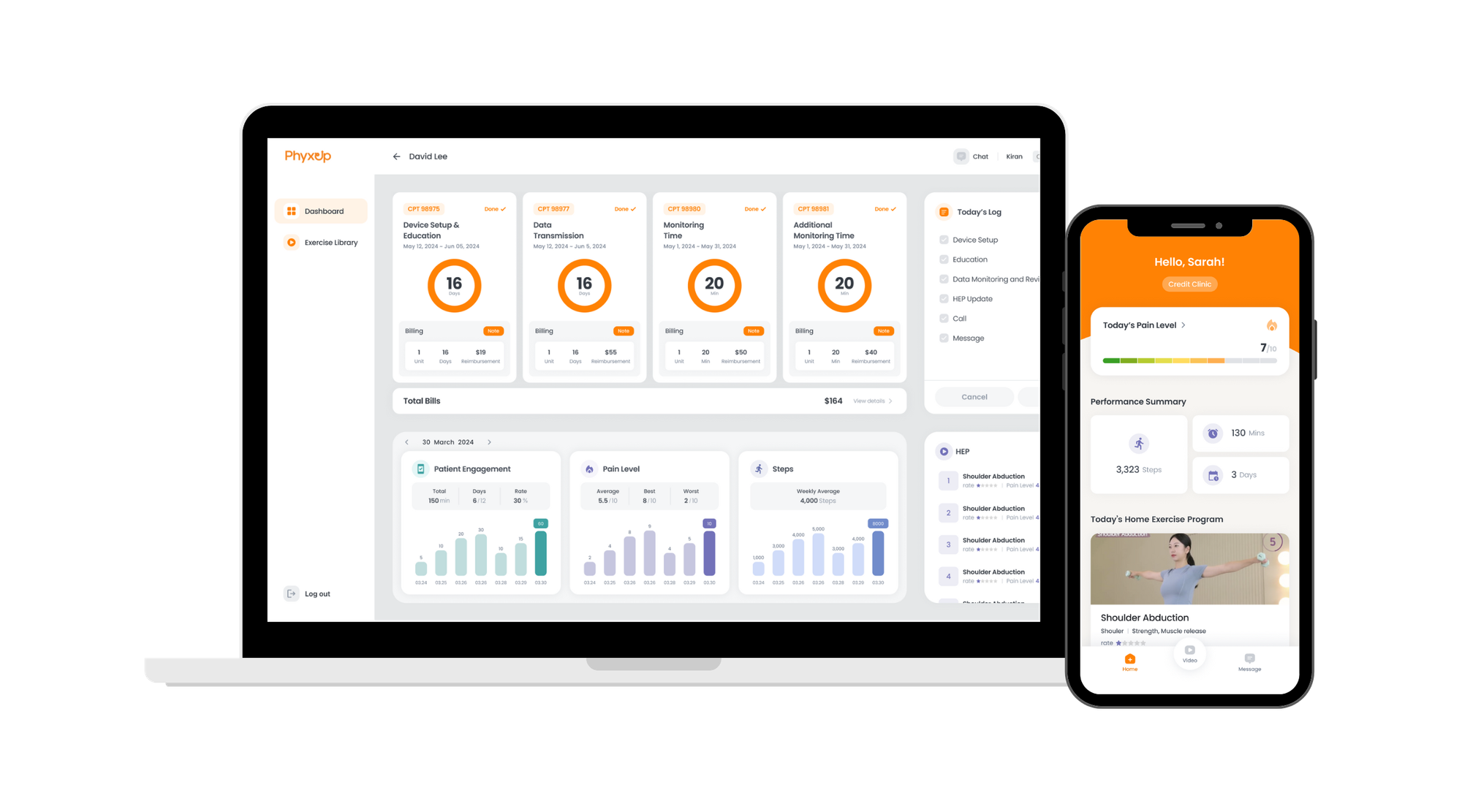
By partnering with PhyxUp Health, clinics can effortlessly implement RTM, allowing them to enhance patient care, improve clinic efficiency, and unlock a new revenue stream—without the hassle.
The Future of Physical Therapy: Embracing RTM for Better Outcomes
As healthcare continues to evolve, Remote Therapeutic Monitoring (RTM) is emerging as a game-changer in the physical therapy industry. By embracing this technology, clinics can reduce the impact of no-shows, optimize patient adherence, and elevate the overall standard of care.
Incorporating RTM into your practice isn’t just about keeping up with the latest trends—it’s about empowering both patients and therapists to achieve better results. With RTM, therapists can maintain strong patient relationships, track progress more effectively, and ultimately deliver the highest level of care—anytime, anywhere.
Are you ready to take your practice to the next level? Learn how PhyxUp Health can simplify RTM implementation and help you provide continuous, high-quality care for your patients.

